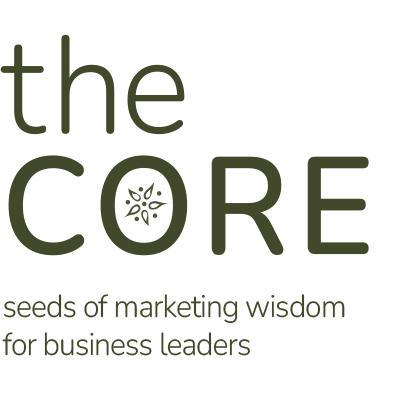Are you ever disappointed by your Facebook reach?
You’re not alone. Brand pages often see dips in engagement for a variety of reasons, but one in particular: Facebook wants you to pay to play. It’s unfortunate, but it’s true. 98% of Facebook’s revenue is generated by ads. And, unsurprisingly, the average reach of an organic post (without paying for an ad) is a sad 5.2%. It’s quite simple: the more you see the need for a Facebook ad—because you’re not getting satisfactory reach—the more money Facebook makes.
So, should you quit Facebook? Not necessarily. But, you do want to be sure that you’re using your marketing dollars effectively. Here are a few ways to make sure that Facebook is worth your time.
5 Books to Read When Looking for Your “Why” in Marketing
Discovering your why when marketing your business should always be step one. It’s the foundation upon which you can build your entire brand—because people don’t create a business without a reason. They create a business because they are passionate about providing something to their audience or solving a problem.
This is especially important for your marketing strategy because when you fully understand what drives you and your company, you can explain it to others. Marketing is primarily storytelling, and you need a story to share with your audience. So, when you’re discovering your why, especially as you inform your marketing direction, where do you start? If you’re a bibliophile, we recommend these five books to find the true drive behind your company’s efforts.
1. Robots Make Bad Fundraisers: How Nonprofits Can Maintain the Heart in the Digital Age
For the nonprofit organizations that live on fundraising, your why is essential. People give their time and their money because they feel good about where those resources are going, and they want to make a difference. By discovering the heart of your organization and telling that story in the strongest way possible, you can insight passion in others and boost your fundraising goals. In Steven Shattuck’s book, Robots Make Bad Fundraisers: How Nonprofits Can Maintain the Heart in the Digital Age, he ventures to answer an important question: Has technology actually gotten in the way of building a personal connection with our supporters? He would argue that, yes, the more digital our world becomes, the less our hearts are in it, and the further we stray from our purpose. We rely on these technologies to fuel our growth, but, in reality, they are allowing us to lose focus, and we aren’t telling the passionate story of purpose these organizations were founded on. This nonprofit-focused marketing book actually has an interesting lesson to teach us all, even in the for-profit sector—how to keep the donors you have, inspire new donors to give, and maintain your team members’ sanity.2. Brand Storytelling: Put Customers at the Heart of Your Brand Story
A business’s purpose always circles back around to the most important person: the customer. We build these businesses because we want to help our audience overcome a challenge or feel a certain way. It’s only right, then, that we keep our customer at the heart of the brand story. Miri Rodriguez’s book, Brand Storytelling: Put Customers at the Heart of Your Brand Story, helps us do just that. Rodriguez guides the reader to use storytelling to trigger the emotions that humans are driven by. She explains how to analyze, pull apart, and rebuild your brand’s story in a way that focuses the business as the “sidekick,” putting the control in the customer’s hands, allowing them to be the key influencer.3. This is Marketing: You Can’t Be Seen Until You Learn To See
“Great marketers don’t use consumers to solve their company’s problem; they use marketing to solve other people’s problems,” says Seth Goldin, Author of This is Marketing: You Can’t Be Seen Until You Learn To See. This book description could stop here, as that’s the perfect way to describe what it means to discover the reason behind why you do what you do. Goldin draws upon his many years in marketing to explain how marketers can make the world a better place through powerful marketing elements: empathy, generosity, and emotional labor. He walks the reader through identifying their viable audience, drawing on the signals to position their offering, building trust, telling a meaningful story, and giving people what they need to achieve their goals. At the end of the day, that’s what it’s all about. Right?4. Building a StoryBrand: Clarify Your Message So Customers Will Listen
Does your message matter if your audience isn’t listening? In his book Building a StoryBrand: Clarify Your Message So Customers Will Listen, author Donald Miller shares his method for connecting with customers—helping them understand the benefits of using a brand’s products, ideas, or services. By simplifying your brand message, your audience will grasp it more quickly and be motivated to move forward. Miller helps readers do this through seven universal story points that all humans respond to. When building our messages, we must keep our messages clear and engaging. And where does that message begin? You guessed it: your why. Your understanding of your purpose allows you to build a clear message. Miller can help you get there.5. Marketing: A Love Story: How to Matter to Your Customers
We search for our why because we want to matter to our customers. That moment when you think, “I have this great service. Why is no one taking advantage of it?” It’s because you know how great it is, and your audience doesn’t. In her book, Marketing: A Love Story: How to Matter to Your Customers, Bernadette Jiwa explains that we “have no shortage of ideas, but we struggle to tell the story of how they are going to be useful in the world.” We couldn’t agree more. By posing a series of thought-provoking questions, Jiwa helps the reader dive into what about their brand will resonate and how to craft a message that will matter. Are you looking to take your marketing to the next level? Contact Green Apple Strategy today to schedule a consultation.5 Marketing Tips for Information Security Professionals
Information security is a highly technical and fast-paced industry. Its audience members range from technical novices to highly-skilled chief information security officers and other IT professionals. So, how do you speak to both? And, what is the best way to reach these two sides of your target audience? In this article, we’ll share the best ways to connect with your current and potential customers.
The Most Important Element
When you’re in the information security industry, the most crucial element of marketing is to educate your audience. They are looking for an expert, and by positioning yourself as a thought-leader, you can show them that you are that expert. Especially as security awareness continues to grow and companies understand the weight of a potential security issue, you’ll find that customers will gravitate toward the company they see as most established and knowledgeable. How can you present yourself as both?
1. Invest in content marketing.
Content marketing is one of the most powerful marketing tactics that information security professionals can use to build their brand and position themselves as experts. With content marketing, you achieve multiple goals at once. You educate your audience, improve SEO through targeted keywords, and build informational pieces that can be used in various ways—social media, email marketing, blog articles, and more. This piece of your marketing strategy is integral to your overall success. And, with a well-designed strategy, you can create a platform that speaks to several different segments of your audience.
2. Educate your audience through webinars and podcasts.
Traditional content creation isn’t the only way to reach your audience. In fact, widening your audience through multiple platforms could be the key to broadening your reach. Your company’s team of experts has insight into a variety of topics that others are searching for online. Webinars and podcasts are the perfect way to get the word out. These platforms not only educate your current and potential customers, but they also allow you to generate leads and boost your brand awareness.
3. Become a guest on blogs, webinars, and podcasts.
While creating your own content, you can also connect with other industry professionals and influencers to become a guest contributor on blogs, webinars, and podcasts. This tactic puts you in front of potential customers, positions you as an expert, provides you with content to share on your own channels, and creates backlinks for your website (an important element of your SEO strategy). Being a guest contributor has several of the same marketing benefits as creating your own content. It’s one more way to illustrate to your audience that you can take care of them.
4. Boost your online presence through local SEO.
Local SEO efforts are crucial to the success of information security professionals. It’s up to your marketing team to ensure that your company is discoverable in a comprehensive set of ways—your web presence is a significant part of that plan. By focusing on local SEO, you help your audience find you quickly online, showing up in their “near me” search results and increasing your local awareness. Among the many ways to keep your website’s SEO healthy include updating your website consistently as well as updating your Google My Business profile. Your customers want someone local they can trust. Local SEO efforts can position you as that company.
5. Make your website easy to navigate and include resources.
When your audience finally lands on your website, keep them there. Make your website easy to navigate with informational resources that will paint a positive picture of your brand. Your website is at the center of your customer experience, and so it’s an integral piece of your marketing puzzle. Ensure that your website is a clear representation of what you do and why you do it while giving your customer several ways to contact you, order your product, or begin using a service.
Marketing within the information security industry can be a different ballgame—one that is much easier to play with a marketing team that has experience with this particular audience. If you need help boosting your marketing strategy, contact Green Apple Strategy today to schedule a consultation.
Should I Hire an Internal Marketing Team or Outsource to a Local Agency?
Marketing is crucial to the success of a business. It helps you meet your sales goals, increase your brand awareness, and tell your story. Though many understand the importance of marketing’s role in growing a business, few are sure of how to go about it. Should you hire an internal team, or should you outsource to a local agency? For the most robust, effective marketing strategy, we recommend outsourcing. Let’s talk about why.
In this article, we’ll cover a few reasons to consider outsourcing, including:
- Staying ahead of the curve
- Getting more out of your marketing budget
- Having a comprehensive marketing team without searching for employees
- Focusing on your core business operations
With an outsourced marketing agency, you can…
Stay Ahead of the Curve
A marketing agency lives and breathes innovative tools and effective strategies. They are working daily to research new methods, test the effectiveness of a tactic, and identify the best way to connect with your audience. Not only do agencies stay ahead of the latest trends, but they also invest the time into learning about your internal operations and your target audience’s expectations and needs.
Agencies live in the marketing mindset, whereas internal teams are living inside of your industry’s world. When you outsource your marketing, you know that you’re working with a team that will identify your vision, build a strategy, monitor that strategy continually, and do everything in its power to deliver results.
Get More Out of Your Marketing Budget
Can you believe that hiring an external marketing team could actually make your budget stretch further? When you think of it in terms of overhead, you can skip hours of searching for an internal employee and the countless dollars you would spend hiring, training, and managing that new person.
Having an agency on retainer also ensures that your marketing strategy will not be put on hold when someone leaves your team—allowing you to continue growing even during times of turnover. Finally, consider the continual training costs necessary for professional development, such as conferences and classes, and industry organizations’ membership costs.
All in all, agencies bypass your overhead costs and provide you access to a diversely talented and well-trained marketing team that always has a finger on the pulse.
Have Access to a Comprehensive Marketing Team without Hiring
An agency removes the need to hire someone to fill every role—content, digital marketing, graphic design, photography, web development, and so on. You will have access to each of these skills, all in one place. It’s as simple as that. In Green Apple’s case, we approach each new client strategy by handpicking a team of marketing professionals to fit your business’s specific needs. We serve as a full-service, one-stop-shop for all things marketing, and you’ll find that it takes the stress off your plate. Rather than piling marketing tasks onto your to-do list, you know that an agency is already five steps ahead of you.
Focus On Your Core Business
Your business’s core operations are where you want to spend your time. If you’re a roofing company, for example, you don’t want to spend your days wading through marketing tasks, nor should you have to. When companies have the internal capacity to tackle their core focus, that’s when they reach their highest potential. An agency identifies that potential and makes sure that your marketing aligns appropriately. You, on the other hand, focus on what you know and what you love doing. We take care of the rest.
Are you ready to take your business goals to the next level? Contact Green Apple Strategy today to schedule a consultation. To have marketing insight sent straight to your inbox, sign up for our newsletter—The Core.
7 Reasons You Shouldn’t Cut Your Marketing Budget in a Recession
“But, we have to cut something.” You may be feeling as though marketing is the easiest line item in your budget report to slash. We get it. As we’ve worked through this recession, Green Apple has made cuts of our own to ensure that we’re financially strong enough to serve our customers. We’re right there with you. However, cutting your marketing budget can hurt your business long-term, even when it might help it slightly in the immediate future.
To ensure that your business can continue serving its customers, you must consider a few key points. Here are seven reasons to reconsider reducing your marketing budget in a recession.
1. What if your competitors don’t?
You may consider cutting your marketing budget, but if your competitors don’t, where does that leave you? When you reduce your marketing budget, you decrease how and how often your customers see you—allowing your competitor to move in.
2. Your marketing team can help your customers support you.
The return on investment for your marketing strategy is still valid during a recession. While things are “normal,” your strategy is to drive sales and build relationships; however, during a recession, you are more focused on the relationship-building side of things and can keep your customers invested in your success. They love you as much as you love them, and they don’t want to see your business struggle. Your marketing team can help you show the right amount of vulnerability and transparency, while still sending the message that you are here to help.
3. Your marketing team protects you.
Clients often think about marketing as advertising, but it’s so much more. Your marketing team is telling your brand’s story, and that story must be shaped to align with the social climate—so as to not be insensitive or offensive. Using COVID-19 as an example, companies needed to quickly shift their messaging strategies to be sensitive and empathetic. Having a team on your side that can help shift and shape your message allows you to support your audience, while keeping your brand top of mind.
4. You don’t want your customers to feel abandoned.
Your marketing strategy strengthens your relationship with your audience. A reduction in your budget can leave your customers wondering where you went—or worse, if your business is in jeopardy of shutting down.
You will, of course, be there for your audience in a different way during a recession. Your messaging will focus on how you’re taking care of customers as the tides change. Marketing can tell your audience what you’re doing to keep their best interests in mind, strengthening their trust in your brand.
5. It may be time to launch that new product.
You have less competition during a recession, as other companies are focusing on staying afloat. They aren’t putting their time and effort into launching new products or growing their business. If you are in the position to, and you have ideas ready to launch, work with your marketing team to put your new product out into the world.
6. You will not bounce back as easily.
If you reduce your marketing efforts, it leaves you in a difficult position when you’re ready to bounce back. You’ve spent a great deal of time and money growing your brand’s reach. Rather than scaling back, discuss a strategy with your marketing team to find ways to keep your reach consistent. Once the economy is on an upswing, you will appreciate not having lost months—or years—of progress.
7. It can take you off course to meet your goals.
Even amid a recession, you still want to move forward. Your marketing team can help you keep your goals in mind and find new strategies to meet them. Don’t underestimate a marketing team’s versatility and the potential to keep your business growing, even when the economy is less than ideal.
Talk Strategy Before You Make Cuts
Before you decide on your budget, discuss all the options with your marketing team. They can likely work with you to achieve your goals, even with necessary budget accommodations. Your relationship with your marketing team should be transparent—they want to see you succeed, too, and will do everything they can to make that happen.
Ready for a marketing team with your best interests at heart? Contact Green Apple Strategy today to schedule a consultation.
3 Ways to Earn the Trust & Attention of B2B Customers
Whether your brand has long been established, is getting a refresh, or is a new start-up company, it’s getting harder and harder to stand out in today’s noisy, competitive world. To make our point even clearer, take a moment and scroll through your email inbox. How many of those emails are marketing messages? And, how many have you read or even opened?
If you want to stand out in an increasingly noisy world, you must earn the trust and attention of your customers. This isn’t anything new. It’s what Seth Godin outlined nearly two decades ago in his book, Permission Marketing. The difference is this concept has become increasingly more important in today’s world.
3 Ways to Earn the Trust & Attention of B2B Customers
If you’re a B2B company, here are three specific ways you can earn more trust and attention from today’s customers:- Create the same kind of personal and relevant experience as the best B2C companies.
- Create an experience that matches your brand promise.
- Leverage transparency as a marketing strategy.
Green Apple Named Among 8 Best Marketing Consultants in Nashville by Expertise
When we founded Green Apple in 2012—we wanted it to be a marketing agency that was always committed to helping businesses solve their biggest challenges. Rather than growing into a behemoth company, our desire was to stay small and agile, bringing together freelancers who were experts in their specific skill sets to work collaboratively in serving our clients. We sought to be an agency that was able to focus more on our clients and less on ourselves.
While every business leader knows that running a business is hard work, it’s been incredibly rewarding for us—which is why achieving recognition for all the work we’ve put in over the years makes it even more meaningful. Most recently, Green Apple was recognized as one of the best marketing consultants in Nashville by Expertise.com.
How Green Apple Was Selected as One of the Best Marketing Consultants in Nashville
Expertise.com is one of the leading online research platforms designed to feature businesses that have been identified by its research process as the best in a specific city or area. Its proprietary research and selection process has been used to identify the top service professionals in over 200 different industries across the top cities in the United States. Each month, Expertise.com helps over 10 million customers find the best qualified service professionals for their needs. To date, the Expertise.com has analyzed over 10 million companies. For identifying the best marketing consultants in Nashville, Expertise.com started with a list of 139 different marketing agencies, scoring them on more than 25 variables across five categories:- Reputation—A history of delighted customers and outstanding service
- Credibility—Building customer confidence with licensing, accreditations, and awards
- Expertise—Masters of their craft, based on years of practical experience and education
- Availability—Consistently approachable and responsive, so customers never feel ignored
- Professionalism—Providing service with honesty, reliability, and respect
Experience the Green Apple Difference for Yourself
If you’re looking for marketing support, we’d love to connect and show you why we were ranked as one of the best marketing agencies in town. Here are a few specific ways our team at Green Apple can help:- Green Apple Strategy—As a full-service marketing agency, we can mold our marketing practices around your business to help you be successful. Whether it’s strategy, design, content development, digital marketing, media relations, paid search, or SEO, we take a hands-on approach to delivering custom marketing services that demand results.
- The Orchard House—Whether you’re looking for a space to host your next retreat, brainstorming session, team training, presentation, or meeting, The Orchard House is the ideal environment to help you and your business flourish. The Green Apple Strategy team is also available to host a variety of strategic planning and learning sessions.
- The SEO Silo—The SEO Silo is Green Apple’s latest project to help local businesses maximize their search efforts. Over the past several years, our team has helped our clients dramatically increase brand awareness and improve lead generation through our SEO services. At the same time, we recognize there are many businesses who could use help but might not be able to hire a full-service marketing agency. The SEO Silo is our answer.
Frustrated by the Fact that Marketing Is Constantly Evolving?
When it comes to marketing, the only constant is that it’s an industry that’s always changing. Think about it. Less than a decade ago, businesses were thriving because they were posting on Twitter, getting tons of comments on every blog post, and sending a monthly e-newsletter. Today, those tactics aren’t producing nearly as much engagement.
As the owner of a marketing agency, I understand why it’s easy to get frustrated by the constantly-evolving nature of marketing. I’ve had dozens of discussions with small business owners over the past seven years who tell me their marketing isn’t working. They express that finding a marketing tactic that works and provides the reach or scalability needed to drive results seems impossible. For small businesses with limited resources and budgets, this can be maddening. For everyone else, it makes business development hard to sustain for an extended amount of time.
4 Principles to Remember as Marketing Continually Evolves
Here are some encouraging reminders I share with business leaders or marketing managers who are frustrated by the fact that nothing seems to be working like it once did:
- Embrace the fact that marketing always changes. The reason marketing seems to be evolving so quickly is because customer behaviors are rapidly changing. Today’s customers have an incredibly finite amount of time and attention to give to something. Rather than getting frustrated by this fact, embrace it. Recognizing we only have a few seconds to capture our audience’s attention opens up creativity to solve this new challenge.
- Stop looking for the silver bullet. There isn’t a single marketing tactic that is guaranteed to work without fail for the next five years. Just because your competition is trying something doesn’t mean it’ll work for you. Instead, focus on what your customers want. Your customers need solutions to their problems, not more information about your brand.
- Focus on strategy, not tactics. Wondering why your marketing efforts aren’t working like they used to? When most businesses say their marketing strategy isn’t working, what they typically mean is that the tactics aren’t effective. Rather than focusing on tactics, it’s important to recognize the underlying strategies the tactics are built upon—and hold onto those rather than the tactics themselves.
- When all else fails…be human. Certain marketing principles are timeless. Remembering to be human is one of them. What works today—something that has always worked—is grassroots, person-to-person, authentic, transparent actions. Creating personal and meaningful connections with potential customers will always work when it comes to growing your business.
The world of marketing is undergoing a profound evolution. Things that worked yesterday won’t work as well today. But, that’s a good thing because we know there will always be new tactics and strategies we can deploy to appeal to basic human emotions of potential customers.
3 Biggest Obstacles to Marketing & Sales Alignment (and How to Overcome Them)
Marketers have always had a love-hate relationship with sales. But, making sure your sales team feels supported and happy is essential for the relationship to be successful. If your sales team is frustrated with marketing, no one is happy. So, getting to a state of alignment is crucial.
Most marketers have issues aligning with their sales teams to create a true partnership. However, new technology and the evolving roles of both teams have created new obstacles for alignment. The good news is that there are ways to ease these burdens and create a working partnership that creates a better customer experience.
Overcoming the 3 Biggest Obstacles to Marketing & Sales Alignment
Here are three obstacles that marketing leaders find most challenging when it comes to alignment, along with some recommendations to overcome them:
1. Accountability
Being a marketer is tough. You spend a lot of time on lead generation activities, trying to generate new conversations for your sales team. Sales teams who don’t follow up with leads can be one of the biggest frustrations for marketers.
Holding sales teams accountable to follow up with marketing leads starts with making sure both teams understand their roles and expectations. It also requires developing processes and systems that enable both teams to collaborate together, even if it’s for 30 minutes a week. Some teams even put together formal service-level agreements to define the responsibilities of each team.
2. Measuring ROI
Marketers must have confidence that the strategies and tactics you’re investing in are going to help your business group. If you can’t define and quantify the role marketing plays in driving conversations for sales, it’s difficult to understand the contributions you’re making.
In order to measure the ROI of your marketing efforts, both teams must be up-front about what has worked (and what hasn’t). It’s also important to identify the specific marketing metrics that impact sales. Discovering these numbers isn’t always easy on the front end, but it’s important if you want to quantify the ROI of your marketing efforts.
3. Feedback & Data Input
Feedback from your sales team is the only way to know whether or not the leads you’re creating are worth anything. However, getting sales teams to provide feedback or update Salesforce, for instance, can be a considerable challenge.
To get ahead of this, you might need to explain why marketing and sales alignment is important. You might need to educate your sales team on what you need. It’s also important to earn their trust by coming up with quick wins for them.
When sales and marketing teams are on the same page, everyone’s job is much easier. Not only do you optimize your marketing efforts, you also enable sales teams to be more effective by creating a seamless journey from lead to customer.
How to Pivot Your Marketing without Abandoning Your Entire Strategy
As the owner of a marketing agency, I’m constantly getting emails from frustrated business leaders asking for help. They’re discouraged because their marketing isn’t working. But, they also want to know what adjustments they could make to start gaining traction again. We also see this with our own clients—when certain tactics take time to pay off or other strategies don’t produce the results we thought would happen.
Most businesses can’t throw out their entire marketing strategy and start over from scratch. They’ve invested a lot of time, energy, and resources into their long-term plan. And, most of the time, I encourage them NOT to throw the baby out with the bath water. What they need involves finding a way to course-correct and stay on track to meet their goals.
How to Pivot Your Marketing Strategy
So, how do you balance the short-term course corrections without abandoning your long-term strategy and larger objectives? Here are a few principles I’ve seen work really well for our clients at Green Apple:
1. Build short-term adjustments into your long-term plan.
One reason course corrections can be so frustrating is because we don’t plan for them. But, if you’ve been in marketing for more than five minutes, you know things don’t always go according to plan. You can do all the due diligence, and a strategy might still fall flat.
One way to avoid the frustration of course-corrections is to proactively plan for them. Recognize there will be three to four course corrections you must make each year, and build margin into your strategy. Actually include them in part of your annual planning process. When you assume the worst and recognize there will be marketing campaigns that fall flat, you can be more proactive about building in short-term adjustments into your long-term plan.
2. Set aside a portion of your budget for testing new ideas and tactics.
Marketing is always evolving and changing. If you rely on the same strategies year after year, you’ll pay for it down the road. Therefore, it’s important to constantly test new ideas and tactics that help you reach potential customers.
A good rule of thumb is to reserve at least 5-10% of your budget for testing and learning. Whatever number you land on, it’s important to reserve funds for testing marketing tactics that could improve short-term results and provide insights for future campaigns.
3. Make it a priority to constantly measure performance and leverage data in your decision-making.
Creating a data-driven culture where everyone understands the value of data is a crucial aspect of marketing. Constantly measuring the performance of each campaign will help you know when to pivot before it’s too late. As you gather data over time, you should be able to develop a more effective long-term strategy. Ideating around strategy is fun, but measuring results leads to growth. With discipline, you can deliver both.
Bottom line: Long-term planning and short-term course corrections are both essential when it comes to effective marketing. If you are frustrated because your marketing isn’t working, make sure to evaluate which short-term methods can be executed quickly and are proven to have an immediate impact.












